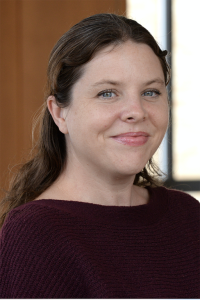
Grant Terminations Gut Training Programs
December 2025 update: After several months of uncertainty, federal funding for some, but not all, of the grants featured in this story was restored.
For more than half a century, Columbia Mailman School has stood at the forefront of psychiatric epidemiology, a field dedicated to understanding how the interplay between social and biological factors shapes mental health. Its faculty and alumni have shaped the discipline, producing influential research that continues to inform public health policy today.
At the heart of this legacy is the Psychiatric Epidemiology Training (PET) Program, which has been continuously supported by T32 training grants from the National Institutes of Mental Health since 1972. PET, one of the few programs of its kind, has nurtured generations of scholars. Its alumni now hold leadership positions across academia, government, and industry, shaping mental health research and policy worldwide. Yet in March, with little warning, the program lost its funding. This devastating blow came just weeks after the passing of Bruce Dohrenwend, a longtime epidemiology professor and one of the field’s founding figures.
The NIH similarly terminated grants for the School’s Training Program in Mental Health Biostatistics and Data Science and Substance Abuse Epidemiology Training Program. One immediate result: student research on suicide prevention algorithms and PTSD biomarkers may never reach completion.
The timing could not be worse. Depression and anxiety rates in the U.S. have reached unprecedented levels. Yet, nearly half of the people with mental illness receive no treatment at all, and many who do receive care find it inadequate. “We’re facing a mental health crisis that demands innovative, prevention-focused research,” says Katherine Keyes, professor of epidemiology and PET’s director. “If we want public health systems that prioritize mental health, we need to prepare scholars to tackle critical questions, including the relationship between biology and our social conditions, and most crucially, how to develop effective interventions.”
The loss of funding for PET and similar training programs across Columbia University Irving Medical Center erodes the infrastructure that cultivates public health leadership. For decades, federal grants have supported a vital ecosystem that enables scholars to develop their research under the guidance of world-class mentors. Likewise, federally supported pathway programs introduced public health to high school and college students who might not have otherwise pursued the field. This model proved remarkably effective at advancing both science and careers. Now, its sudden disappearance jeopardizes a core mission of schools of public health: building expertise to address present and future health challenges.
The Best Laid Plans
Launched in 2008, the Biostatistics Epidemiology Summer Training (BEST) program was the brainchild of two Columbia Mailman students: Emma Benn, DrPH ‘12, MPH ‘07, and Gary Yu, DrPH ‘14, MPH ‘06. Funded until recently by an R25 grant from the National Heart, Lung, and Blood Institute, the eight-week pathway program for undergraduates was created to increase the number of people from underrepresented racial and ethnic groups in the field. More than just making public health more inclusive, the program welcomed valuable new perspectives.
“I was a doctoral student in a field where I didn’t see or I didn’t know many people who looked like me,” Benn, who is African-American, recalled at a 2017 event celebrating the program’s tenth anniversary. Today, Benn is an associate professor in the Center for Biostatistics at the Icahn School of Medicine at Mount Sinai, where she conducts research on health disparities and serves as the associate dean for faculty well-being and development.
One of several similar NIH-funded undergraduate training programs nationwide, BEST provided students with a concentrated introduction to biostatistics, ranging from basic concepts, such as calculating prevalence and incidence, to advanced topics in linear and logistic regression. Each “BESTie” worked with a faculty mentor on a research project with real-world implications.
“BEST trained generations of some of the most promising undergraduate students across the nation,” says Kiros Berhane, the Cynthia and Robert Citrone-Roslyn and Leslie Goldstein Professor and Chairman of the Department of Biostatistics. “We introduced them to graduate-level work and to the fields of biostatistics and epidemiology. The program launched them into a career they may not have otherwise considered. It has been very effective. BEST graduates have enriched doctoral programs at Columbia and across the nation and have gone on to successful careers in academia and industry.”
While BEST created pathways for undergraduates into public health, it also served as a template for similar programs, including PrIMER (Program to Inspire and Mentor Undergraduates in Environmental Health Science Research), the Summer Institute for Biostatistics and Data Science, and the Neuro-Epidemiology Training Program, as well as funding for a training program in environmental health sciences and engineering for high school students in the South Bronx. Funding for those programs has also been cut. Now, just one Columbia Mailman pathway program continues—the Summer Public Health Scholars Program.
Implementation Science Interrupted
Throughout her career, Andrea Howard, an associate professor of epidemiology at Columbia University Irving Medical Center and director of the Clinical and Laboratory Unit at ICAP, has witnessed significant advances in the fight against HIV. ICAP, in partnership with ministries of health in more than 40 countries, has brought treatment and preventive interventions to millions. “There have been steady advances in HIV prevention, care, and treatment, yet the scale of the epidemic remains large,” Howard says. “Among the top priorities now is learning how to implement evidence-based interventions to maximize their impact and effectively bridge the implementation gap.”
Closing this implementation gap takes research—and researchers. Enter the Global HIV Implementation Science Research Training Fellowship, which, under Howard’s direction, has supported doctoral and post-doctoral fellows as they pursue cutting-edge research programs—often leveraging a robust global network forged by ICAP. Until its termination this spring, the program has been continuously funded since 2014 by T32 grants from the National Institute of Allergy and Infectious Diseases. Its alumni have gone on to careers in academia, government, and non-governmental organizations. “The work they do as fellows has been crucial to advancing the field as a whole,” Howard explains.
Craig Heck, PhD ’25, who was a fellow in the program between 2019 and 2022, worked with world-renowned HIV researcher Quarraisha Abdool Karim and, with support from the T32, was able to travel to South Africa to pursue research on ways to reduce the risk of HIV among adolescent girls and young women. He calls the experience “catalytic” in terms of developing his research portfolio and expertise. “It helped me build the knowledge and build the confidence it takes to lead independent research projects, as well as helping me understand where I needed to grow to succeed,” Heck says.
For his exemplary research, the Columbia Mailman School honored Heck with the 2025 Award for Excellence in Global Health. This summer, he is part of Columbia Global’s inaugural Scholars-in-Residence cohort. At Columbia Global Center Nairobi, he will be researching the effects of American funding reprioritizations on Kenya, among other topics. For now, a more sustained means to continue his research is out of reach. “I’m still committed to global health work,” he asserts. “It’s just requiring a little bit more creativity.” Heck is one of scores of young researchers whose talents could go to waste. Big picture, this situation threatens to undermine the fight against HIV. “I think that we may see HIV infections increase in areas of the world where we were close to controlling the epidemic,” Howard says.
An Uncertain Future
This spring, Columbia University announced special funding to support students and postdoctoral researchers in training programs whose funding had been terminated. Additionally, the Columbia Mailman School has provided more than $1 million in funding for a Research Response Fund, thanks to contributions from generous alumni, members of the Board of Advisors, and other friends of the School. Some programs whose grants were canceled may continue—but with far fewer resources. Nevertheless, the loss of funding has forced academic departments to cut the number of doctoral students they admit.
Training and pathway programs are investments in the future of public health, extending the reach of public health education to future scholars and practitioners, from high school students to postdoctoral researchers. Developing highly specialized analytic skills takes years. Today’s trainees are hard at work on advancing the field to address health challenges in the decades ahead. Without the support of robust training programs, they may be forced into another field, ultimately endangering not only the academic and scientific enterprise but public health as a whole.
Katherine Keyes credits PET with her career as a leading scholar of psychiatric epidemiology. “Being part of the program shaped my life. Some of the best friends I have in academia are in my PET cohort,” Keyes asserts. Looking ahead, PET will continue despite the loss of its funding, but she says, “I don’t know what that looks like.”
“There is nothing at the scale of funding that NIH provides that can replace it,” Kiros Berhane explains. “The people of the United States are going to pay a big price in terms of missed opportunities of training the next generation of public health leaders and in terms of inability to advance science to address societal public health issues—both those currently existing, but also those coming around the corner, too.”







